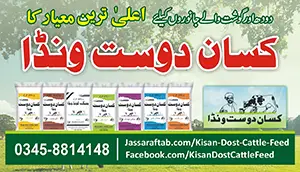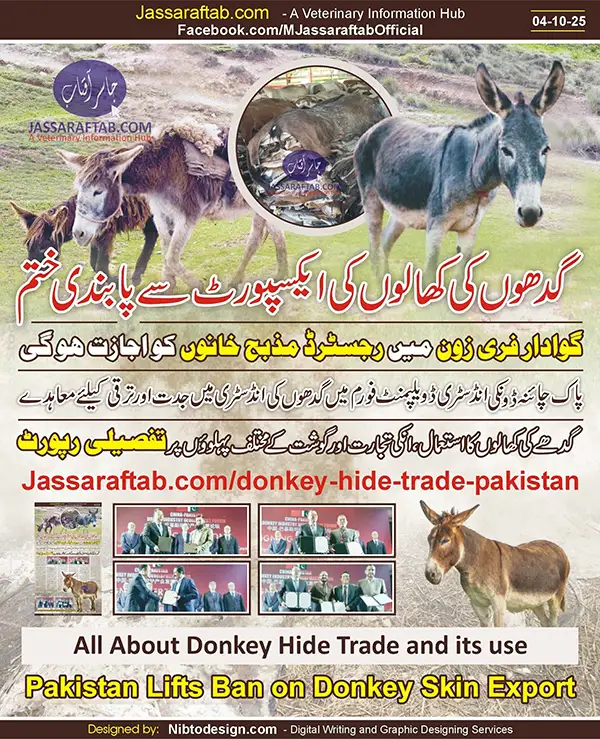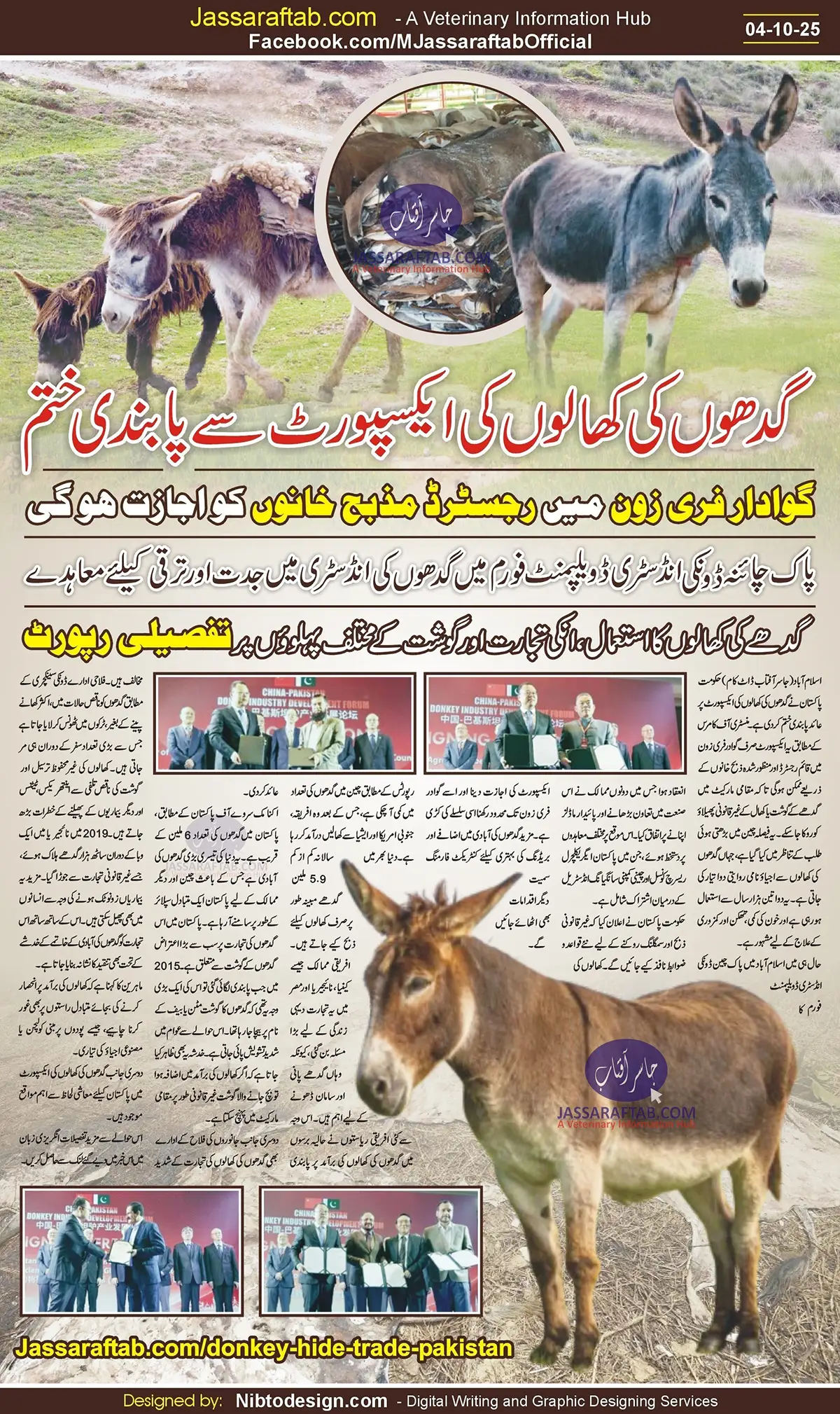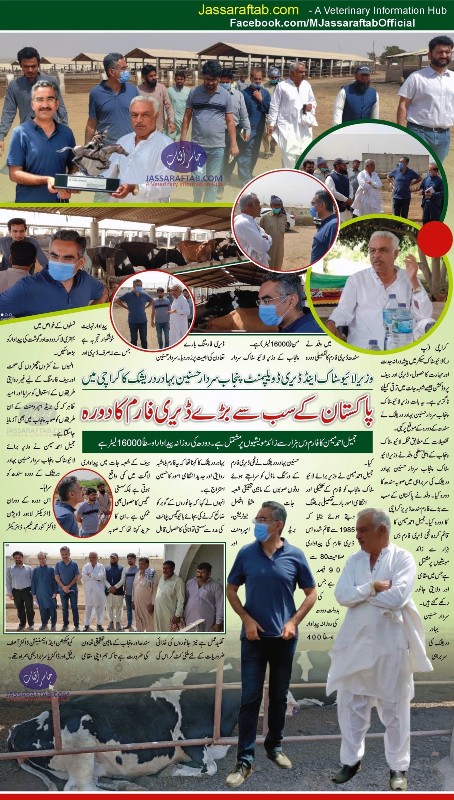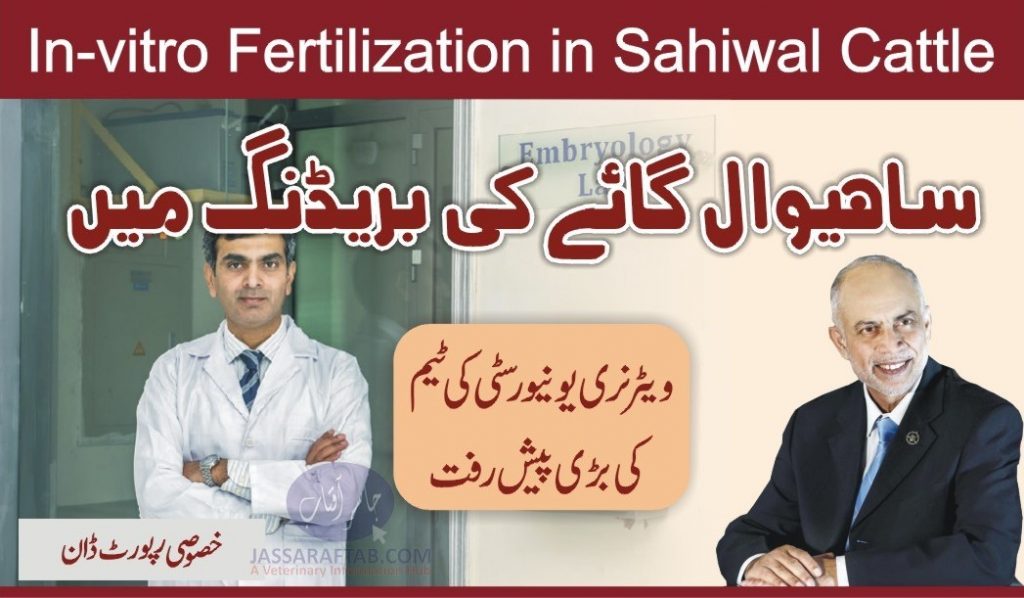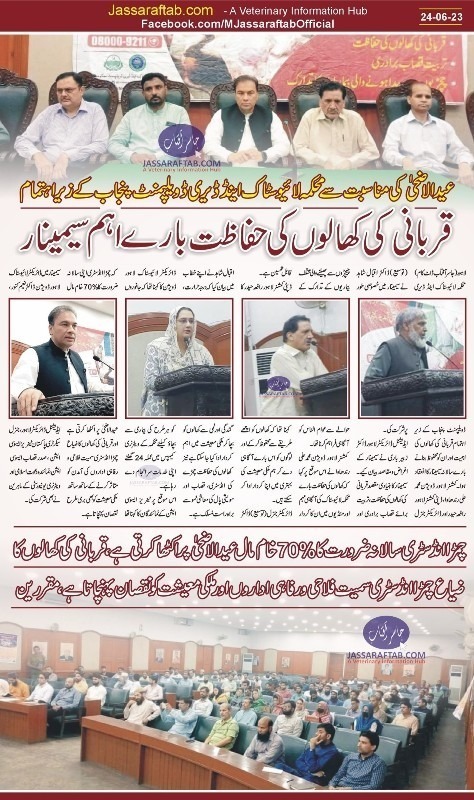All About Donkey Hide Trade – Pakistan Lifts Ban on Donkey Skin Export
The federal government has officially lifted the ban on the donkey hide export or donkey skin export. A notification from the Ministry of Commerce confirmed this. There is a lot of criticism on the Donkey Hide Trade or the Donkey Skin trade, but at the same time, it is an economic opportunity for Pakistan. Various aspects of the trade of donkey hides, donkey meat, donkey population in Pakistan, and donkey skin medicine, ejiao, as well as concerns of the animal rights activists, are discussed here.
Permission of Donkey Skin Export and its History
Federal Government of Pakistan has given permission for donkey skin export with some conditions. Donkey hide export will be allowed through the designated and registered donkey slaughterhouses in the Gwadar Free Zone. This condition is to control the illegal slaughter of donkeys and the smuggling of donkey hides. Moreover, it will also control the issues of donkey meat and its sale in the market.
This development has revived an old debate. Donkey hide export has been banned and lifted at different times in Pakistan. In 2015, the Economic Coordination Council (ECC) imposed a ban on the Donkey Skin trade due to reports of donkey meat being sold as beef and mutton in local markets. Public health and food safety concerns led to ban on this export in the past. But the rising international demand of donkey hides, export is allowed after ten years under some conditions.
Why Is Donkey Skin in Demand? Ejiao Medicine
The demand for donkey hides is due to the emerging global demand for ejiao medicine, which is colloquially called donkey skin medicine. This is a traditional Chinese medicine which has gelatin from donkey hides. Donkey skins are boiled and processed to extract collagen. Ejiao has been used in China for more than three thousand years. This donkey skin medicine is believed to treat blood deficiency, fatigue, and anemia. Its popularity is increasing rapidly after Chinese television shows on it, presenting it as a luxury health tonic. This is also increasing donkey hide export in various parts of the world.
The donkey population in China has decreased over the years. To keep up with the demand, the international market is emerging. Africa, South America, and Asia are the focus for the donkey hides. As a result, millions of donkeys are slaughtered every year across the world. Reports suggest that at least 5.9 million donkeys are killed annually for their hides, allegedly.
Donkey Hide Trade Around the World
Africa has been one of the biggest suppliers, with countries like Kenya, Egypt, and Nigeria exporting hundreds of thousands of hides. But the heavy slaughter for donkey hide export has created serious problems for rural communities. Donkeys are important for daily life in many poor regions. They carry water, firewood, and goods, and play role in the livelihood.
With the increasing pressure of the Donkey Skin trade primarily due for donkey skin medicine, donkey thefts also increased. Families often woke up to find their animals. In 2023, different states agreed to ban the trade of donkey hides to protect communities and ecosystems.
China-Pakistan Donkey Industry Development Forum 2025
The China-Pakistan Donkey Industry Development Forum has been opened in Islamabad. The theme of the forum was “Creating Opportunities Together, Winning the Future Together.”China Chamber of Commerce in Pakistan and Sangyang Industrial (Beijing) Group Co. Ltd, Chinese Embassy in Pakistan and Pakistan’s Ministry of National Food Security and Research collaborated for this forum.
Government officials, researchers, experts, and business leaders attended the forum. They discussed various aspects for the development donkey industry. They also focused on setting standards and creating sustainable business models.
The Ministry of National Food Security announced new regulatory measures to guide exports and stop illegal slaughtering or smuggling. The China Chamber of Commerce in Pakistan also issued a Self-Regulation Declaration, pledging strict compliance with laws, sustainability standards, and respect for cultural and religious sensitivities.
Several agreements were signed at this event:
- A Letter of Intent between PARC and Sangyang Industrial
- An MoU for the China-Pakistan Joint Laboratory for Donkey Industry Innovation
- Partnerships between Cholistan University, Sangyang Global, and the Shandong Ejiao Industry Association
Plans for contract farming in Pakistan, to create a high-quality and eco-friendly donkey industry, were also announced. Moreover, the forum highlighted the different aspects of donkey breeding, feeding, and smart management in farming to reduce the cost of production, meeting the international market prices.
Critics of the Donkey Hide Trade
Animal welfare organizations criticize the donkey skin trade. The Donkey Sanctuary has raised concerns over smuggling, donkey theft, and cruelty. There are also serious public health concerns. The unsafe transport of untreated skins can spread diseases like anthrax, tetanus, and equine influenza.
مال برداری اور دیگر کاموں میں استعمال ہونے والے گدھوں کے حقوق، عائدہ انجم کی خصوصی تحریر
Donkey Hide Trade and Economic Opportunities for Pakistan
The Donkey Population in Pakistan is 6 Million. The donkey hide trade could bring economic benefits. Officials say donkey farms and slaughterhouses in the Gwadar Free Zone will create jobs. Moreover, donkey hide export to China could also bring foreign exchange and help farmers earn money by selling donkeys.
Some business leaders suggest replacing donkey carts with motorcycles for poor communities and then purchasing the donkeys for export. They believe that this shift will modernize transport while also benefiting trade.
Moreover, contract farming and the promotion of commercial donkey farming in Pakistan can open new business avenues and enhance this trade.
Poultry and Livestock Data 2025; Pakistan Economic Survey 2024-25
Donkey Hide Trade and Donkey Meat
The donkey skin export in Pakistan is controversial due to the controversy surrounding donkey meat. While hides are exported mainly to China but the leftover carcasses pose a serious challenge. In several past incidents, donkey meat was illegally sold in local markets disguised as beef or mutton. It raised the issues of food fraud, food safety, and public health. This issue has cultural as well as religious sensitivity. Critics warn that without strict monitoring of carcass disposal, the expansion of donkey hide export may also increase the illegal meat trade. It will create public health risks and damage Pakistan’s livestock industry’s reputation. Therefore, experts argue that any policy promoting donkey hide export must be accompanied by strict monitoring with strong legislation.
Donkey Skin Trade, Ejiao, and Alternatives
Alternatives to donkey hide based ejiao or donkey skin medicine are gaining attention slowly. Scientists have started testing plant-based collagens and synthetic substitutes. These options could reduce the pressure on donkey populations. But on the other hand, ejiao or donkey skin medicine made from real donkey skins dominates the market. The growing demand for this donkey skin medicine is increasing he market for this donkey skin export.
The Way Forward for Pakistan
On one hand, the donkey skin export is an economic opportunity, but on the other sid,e it raises animal welfare, public health, and ethical concerns. Without strict monitoring, the risk of donkey meat entering local markets and the spread of disease could become serious problems. Moreover, it will also be a great threat to donkey population in Pakistan.
The decision to allow export from Gwadar Free Zone slaughterhouses shows that the government is trying to keep the Donkey Skin trade controlled. It is also a step to keep it away from local markets. Moreover, agreements at China-Pakistan Donkey Industry Development Forum 2025 will also help to regulate Donkey Skin trade.


